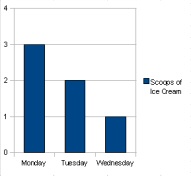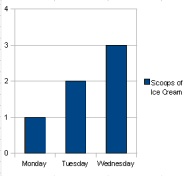The Angst of the Dip
Recently I wrote about “The Dip” by Seth Godin. It’s a book about how every project goes through a dip, a time of being difficult and uncertain. We have to choose which projects to push through, and which to wisely abandon.
I am experiencing one of those dips up and close and personal right now. When I got my iPad I got pretty infatuated with it and I decided, that’s it, I gotta learn how to wrote apps for these things. So I bought a couple of books on learning the technology, and I spent the money to get a mac computer, required for the development process.
I dove into all the learning curves and had a fantastic, nerdy time figuring it all out. I decided to write a personal time tracking application as my learning project, with a belief that it would be useful and marketable as well. The coaching program I’m in assigns all new members to track everything they do with their time for a week and this app would make that task much easier. So I know at least a few people could use it.
I put the first test version of that app onto my own iPhone yesterday. Then the doubt set in. It’s cool. But is it really marketable? Will I ever sell enough copies to pay for the books I bought (let alone the mac I bought)? There are a few other apps on the app store that do similar things already. Can my approach to time analysis offer a significant advantage? Maybe I just got excited because I’m a nerd about technology stuff, and there’s no real payoff but fun and learning for me. Deep down, I’m probably most afraid of embarrassing myself by getting irrationally excited about something that doesn’t have any real potential.
There it is. The dip, with all its doubts. And the doubts may very well be right.
On the other hand, the app might be really useful to people who are looking to get a handle on their time. If people find it helpful, it might sell enough to make my nerdy learning project profitable, not just fun. I’ve felt the pressure of the dip on every endeavor I’ve tried before. Some of them failed, some of them succeeded in big ways. What to do, what to do.
My advice (to myself and anyone else feeling the agnst of the dip):
First, resist the fear of embarrassing failure as much as you can. It’s a strong instinct, but not actually dangerous.
Second:
- if there is any reasonable chance of a worthwhile result,
- and if the worst-case downside is an acceptable risk (i.e. it won’t bankrupt you if it fails)
- and if the project does not take you away from something else with clearly superior potential,
- then, pursue the project in the smallest-scale way that will get you to proof-of-concept.
I’ll let you know in a few weeks if I was brave enough (or maybe foolish enough) to follow my own advice.


